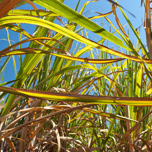November 11, 2013 — Over the past several years, companies have been racing to buy land in developing countries. Such large-scale acquisitions enable them to grow commodity food crops for export or to turn into biofuel. But they often overlook the legal rights and wishes of local communities, and so the practice, known as land grabbing, has been raising eyebrows.
Now Coca-Cola, after coming under pressure from a campaign by the nonprofit Oxfam, has announced a “zero-tolerance“ policy for land grabs in its supply chain. It’s a significant step: Sugar is one of the biggest ingredients driving land grabs, and Coke uses a lot of it.
Chris Jochnick, Oxfam’s director of private sector development who led negotiations with Coke, explains that companies don’t need to stop investing in land altogether. (Coke and many other large companies often don’t do so directly; their suppliers do.) “It’s that they have to do it in a way that respects community rights and legal title,” he says. In land grabbing, “the land is either just taken outright or it’s bought at fire sale prices.”
Coke’s new policy, announced Nov. 7, includes disclosure of the top three countries and suppliers of its cane sugar; adherence to the principle of free, prior and informed consent and a requirement that Coke suppliers do the same; and an agreement to third-party social, environmental and human rights assessments, including of land conflicts in seven key sourcing countries.
Oxfam notes that although Nestlé has a land-grab policy in place, it doesn’t include supply chain disclosure and isn’t zero tolerance — so Coca-Cola appears to be leading the way on this issue. Jochnick says Oxfam will be following through to ensure the company upholds its commitments. Article by Rachel Cernansky; photo by C_Columbus (Flickr | Creative Commons)
Ensia shares solutions-focused stories free of charge through our online magazine and partner media. That means audiences around the world have ready access to stories that can — and do — help them shape a better future. If you value our work, please show your support today.
Yes, I'll support Ensia!
